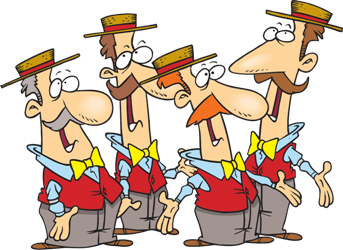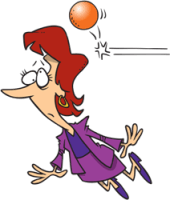Main Verbs, Auxiliary Verbs
(Helping Verbs) and
Compound Verbs
English sentences can have main verbs, auxiliary verbs (also called helping verbs) and compound verbs.
Click Here for Step-by-Step Rules, Stories and Exercises to Practice All English Tenses
Let's go over each group.
Auxiliary Verbs
(also called "helping verbs")
Auxiliary verbs are verbs that are used together with another
verb (called the main
verb of the sentence) to express the action or state. Main verb + auxiliary verb = complete idea
The most common auxiliary verbs are:
be, am, is, are, was, were, do, did, have, has, had.
Are
singing

The main verb is "singing."
The auxiliary verb is "are."

The main verb is "singing."
The auxiliary verb is "are."
Example sentences (the auxiliary verb is in bold, and the main verb is underlined):
- They are
jogging.
- She was
sitting.
- We were
waiting
for
hours.
- Is
she sleeping?
- He didn't
know
the
answer.
- We have
gone
a long
way.
- Has
she received
any of my letters?
- Do
you smoke?
- Will she help?
Click here to learn more about helping verbs.
Practice with an Illustrated Worksheet on English Helping Verbs.
Compound Verbs
A
compound
verb =
auxiliary verb + main verb.Examples:
was playing, has eaten, doesn't want.
She will fall.

"Will fall" is a compound verb.

"Will fall" is a compound verb.
Example sentences:
- They were discussing their future.
- He didn't tell us the truth.
- I have finished my homework.
- She will meet us there.
Get Updates, Special Offers, and English Resources
Download your FREE GIFT (the first two chapters of
English Short Stories Book and Workbook)
as soon as you join!

By submitting your email, you consent to receiving updates and newsletters from us and to the sharing of your personal data with third parties for the purposes of sending you communications. We will not spam you. You can unsubscribe at any time. For more information, please see our privacy policy.
Return from Main Verbs, Auxiliary Verbs (Helping Verbs)
and Compound Verbs to English Parts of Speech





